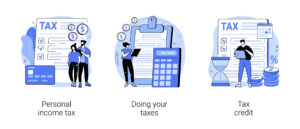New Tax Savings for your Startup

New Tax Savings for your Startup
Congress got something accomplished! In December of 2015, Congress passed the Protecting Americans from Tax Hikes (PATH) Act. Among other things, this Act makes a few important changes to the tax credit for research and development expenses that could have a significant impact on how you operate and plan for your startup.
The Research and Development Credit was first introduced in 1981. Since then the credit has been subject to many changes and was never permanently made into law. The PATH Act remedies that, and the 20 percent credit for increasing research expenditures is now permanent, making it possible for businesses to more effectively and reliably do their tax planning.
Beginning with its 2016 tax return, startups that claim the research and development credit may be able use that credit to offset its FICA payroll taxes for up to $250,000 each year as early as the second quarter of 2017, and more good news, the credit can be carried forward indefinitely. This change is significant and will provide a much needed influx of cash for startups that do not have a tax liability to offset with the previous R&D credit.
Who Qualifies?
You are eligible to use the research and development credit against your payroll taxes if your business is a qualified small business.
1. This means the business has not had gross receipts for longer than the most recent five years (to make the election in 2016, you cannot have had gross receipts prior to 2012);
2. And gross receipts do not exceed $5 million in any year in which the credit is elected.
3. Must have qualifying research activities and expenditures.
How to Make the Election?
1. Complete Section D on Form 6765, Credit for Increasing Research Activities, by specifying how much of the credit will be used to offset the business’s FICA taxes on a timely-filed (including extensions) tax return.
2. The election can be made five times, and the credit cannot exceed $250,000 in any single year.
How to Claim the Credit?
1. You claim the credit on the payroll tax return beginning in the quarter after the election is made, and the tax return is filed.
2. File Form 8974, Qualified Small Business Payroll Tax Credit for Increasing Research Activities, with your quarterly payroll tax return, Form 941, to show the calculation of available credit to report on Form 941.
For businesses who qualify and have expenses eligible for the research credit, electing and claiming the potential $250,000 credit is relatively simple. The PATH Act’s change to the research and development credit puts cash back in the pockets of businesses when they need it the most and can reinvest that money in their company to further innovation and growth and then thrive.
The rules regarding calculating the research and development credit can be complex. Please consult your tax advisor.
We hope you found this article about “New Tax Savings for your Startup” helpful. If you have questions or need expert tax or family office advice that’s refreshingly objective (we never sell investments), please contact us or visit our Family office page or our website at www.GROCO.com. Unfortunately, we no longer give advice to other tax professionals gratis.
To receive our free newsletter, contact us here.
Subscribe to our YouTube Channel for more updates.

Alan Olsen, is the Host of the American Dreams Show and the Managing Partner of GROCO.com. GROCO is a premier family office and tax advisory firm located in the San Francisco Bay area serving clients all over the world.
Alan L. Olsen, CPA, Wikipedia Bio

GROCO.com is a proud sponsor of The American Dreams Show.

The American Dreams show was the brainchild of Alan Olsen, CPA, MBA. It was originally created to fill a specific need; often inexperienced entrepreneurs lacked basic information about raising capital and how to successfully start a business.
Alan sincerely wanted to respond to the many requests from aspiring entrepreneurs asking for the information and introductions they needed. But he had to find a way to help in which his venture capital clients and friends would not mind.
The American Dreams show became the solution, first as a radio show and now with YouTube videos as well. Always respectful of interview guest’s time, he’s able to give access to individuals information and inspiration previously inaccessible to the first-time entrepreneurs who need it most.
They can listen to venture capitalists and successful business people explain first-hand, how they got to where they are, how to start a company, how to overcome challenges, how they see the future evolving, opportunities, work-life balance and so much more..
American Dreams discusses many topics from some of the world’s most successful individuals about their secrets to life’s success. Topics from guest have included:
Creating purpose in life / Building a foundation for their life / Solving problems / Finding fulfillment through philanthropy and service / Becoming self-reliant / Enhancing effective leadership / Balancing family and work…

MyPaths.com (Also sponsored by GROCO) provides free access to content and world-class entrepreneurs, influencers and thought leaders’ personal success stories. To help you find your path in life to true, sustainable success & happiness. It’s mission statement:
In an increasingly complex and difficult world, we hope to help you find your personal path in life and build a strong foundation by learning how others found success and happiness. True and sustainable success and happiness are different for each one of us but possible, often despite significant challenges.
Our mission at MyPaths.com is to provide resources and firsthand accounts of how others found their paths in life, so you can do the same.
IRS Notice 2009-62 Issued 8/7/09
IRS Notice 2009-62 Issued 8/7/09 The due date for reporting the existence of Offshore Bank Accounts on Treasury Department Form TD F 90-22.1 has been an issue of great confusion in the last few months. Form TD F 90-22.1 is known as Foreign Bank Account Reporting (AKA “FBAR”) For a complete review of this soap…
Income the IRS Can’t Touch
Income the IRS Can’t Touch There’s one readily available and legal source of untaxed income that we know of: municipal bonds. These securities are issued by state and local governments, school districts, hospitals and other public agencies to support community projects and services. To permit these worthy endeavors to raise money economically, Uncle Sam exempts…
Avoiding Real Estate Tax Revaluations
Avoiding Real Estate Tax Revaluations by Steven Singer, CPA As a result of the passage of Proposition 13 almost thirty years ago, real estate owners currently enjoy paying property taxes based on the property’s purchase price, value of improvements and an annual increase of 2% over the previous years’ assessed value. As a result of…
Annuities in Qualified Retirement Plans
Annuities in Qualified Retirement Plans By Russell Hill Using annuities in qualified retirement plans. Qualified annuities reduce your current taxable salary in addition to accumulating tax deferred earnings, when you contribute money to an annuities program through an employer (as one of the investment options in a salary reduction retirement plan). Those who work for…


